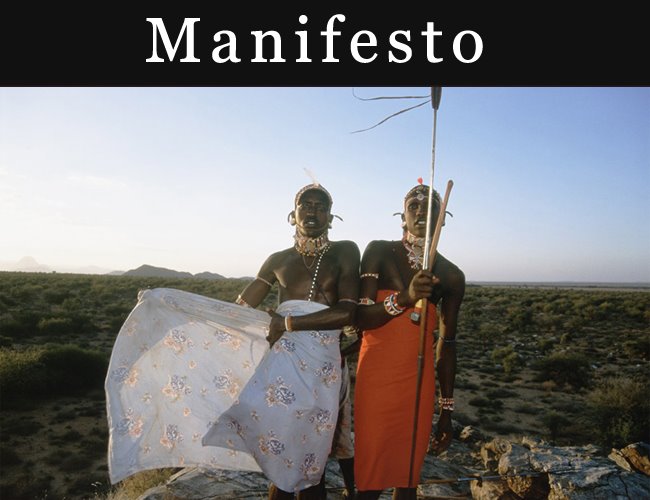 Mandigu Subu-Traditional music from Gambia
Mandigu Subu-Traditional music from GambiaTuesday, 28 April 2009
MANIFESTO presents MANDIGU SUBU
 Mandigu Subu-Traditional music from Gambia
Mandigu Subu-Traditional music from GambiaTuesday, 14 April 2009
The Hero Film Review
Set in post-war Angola, o Heroi follows the return of Victorio, a decorated war veteran. Having lost his leg to a land mine, Victorio returns to the city of Luanda in an attempt to find work and shelter. Proudly wearing his medal, his attempts to find employment are fruitless. Soon it becomes apparent that Victorio has now been shunned by the society he once fought for.
Beautifully intertwined are the stories of two other characters, the attractive yet naive schoolteacher Joana and the young, troubled street kid Manu.
Gratefully, untouched by the likes of Hollywood CGI action sequences or saccharine-sweet romantic interludes, this film is a rough diamond. A plot devoid of polish means that the actors are allowed to concentrate soley on the heart-felt portrayal of their characters.
The realism and no-holds barred attitude towards bringing the impact of the savageries of war upon society is what makes the film so striking.

Manifesto Film Festival
Not this time. This film festival boasts authenticity, grit and spirit. Led by Alberto Tavares, the man behind the Manifesto movement, it promises to indulge the senses and challenge a spectrum of emotions through the story-telling of two films. Both features representing the Portuguese speaking African nations or "P.A.L.O.P." as they have been coined. The festival showcases two films entwined with the Manifesto movement and its dedication to bringing cherished recognition of these nations. As well as being a platform for up-and-coming African artists it also boasts opportunities for those who choose her as their muse.
Firstly, the critically acclaimed and award-winning, The Hero. Set in post-war Angola, the film follows the return home of Victorio, a civil war veteran. It promises to poigantly demonstrate the tragic consequences of civil war upon society and the impact of its aftermath of individuals. Within this story are carefully weaved the tales of three other characters and the cost of war upon their lives.
The second feature is a feature documentary entitled The Journey of Cape Verde. Portrayed through the eyes of a young boy it follows his passage to uncovering his identity as a true Cape Verdean. Filmed in four years it accompanies him on his journeys and delves into Cape Verde's rich history.
The festival spans over three day, claiming to be a realistic protrayal of this often, all too easily overlooked genre.
In an intimate setting, the films will be shown along with commentary from members of Manifesto.

"Voodoo" - Big Idea in a Little Space
Made up of a collection of paintings, sculptures, photographs, literature, and more from both the past and present, “Voodoo” tries to further explain and interpret the religion of Voodoo as well as, according to the catalogue, “look at the mystery of the creative act.” The combination of art tries to express the feeling and vibe of voodoo through one’s experience, rather than spelling it out word for word (although there is a fair amount of information scattered on placards throughout the exhibition).
Upon entering the small gallery, one must be wary of possible traffic jams; the small room has artwork beginning right past the doorway, as well as in the middle of the floor, so making your way around the room can be a bit of an obstacle course. The room’s creaky, worn wood floors add to the ‘attic full of treasures’ feel of the exhibition, and the pieces in the room range from the Wishing Machine, a replica of the original William Burroughs piece, where one can make a deposit and send voodoo to someone (one pound for good voodoo, two pounds for bad), as well as various sculptures and paintings that adorn the walls. The most striking piece in this room though, is Mati Klarwein’s 1963-65 Crucifixion, a triptych that seems to blend a tree of life with the Kama-sutra and Bosch’s Garden of Earthly Delights.The downstairs (the exhibition covers the first three floors of the small gallery) has some fantastic old photography that include images of Voodoo rituals, although one must be warned of the stench coming from Marina Warner’s Bed of Time, an installation of melting, burning wax.
Rachel Karasik
Saturday, 11 April 2009
The Fortunate Isles - A Study in African Transformation

Welcome
Welcome to the Manifesto Blog. We will provide reviews, news and information on African music, art, literature, culture and events.
What is Manifesto?
"Manifesto was founded in 2005 by Alberto Tavares, with a bright and ambitious concept to bring a small piece of Africa to London through Film, Art, Music & Culture. Manifesto Events and Film Festival offer an opportunity to introduce the true wealth of African culture and increase visibility of emerging African artists. Manifesto offers this genuine point of difference by specializing in African sounds and furthermore, PALOP (African countries that speak Portuguese) to each and every event. With an African music policy, the deep origins of post colonization beats and sounds are entwined with a contemporary feel of modern African artists."
